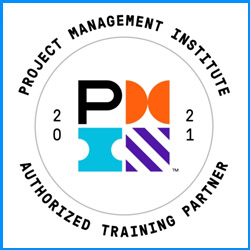Project Management Institute – Agile Certified Practitioner (PMI-ACP)®

The Project Management Institute – Agile Certified Practitioner (PMI-ACP)® recognizes your knowledge of Agile principles, tools and techniques, to achieve self-organizing, cross-functional teams.
What is PMI-ACP®?
A demand in the flexible Agile process management gradually increasing nowadays.
The Project Management Institute - Agile Certified Practitioner (PMI-ACP)® is intended for project management professional recognizes one’s knowledge of agile principles and methodology, as well as skills with agile techniques. It is essential for companies or organizations who are currently running or are planning to shift to agile practices.
The PMI-ACP® carries a higher level of professional credibility as it requires a combination of Agile training, experience working on agile projects, and examination on agile principles, practices, tools, and techniques.
The PMI-ACP® is divided into 7 domains, with different numbers of tasks for each domain. The certification exam consists of a percentage each of the domain, to test one’s mastery and hands-on experience and siill.
DOMAINS AND TASKS
Domain I - Agile Principles and Mindset (9 tasks)
Explore, embrace, and apply agile principles and mindset within the context of the project team and organization.
Domain II. Value-Driven Delivery (4 sub-domains, 14 tasks)
Deliver valuable results by producing high-value increments for review, early and often, based on stakeholder priorities. Have the stakeholders provide feedback on these increments, and use this feedback to prioritize and improve future increments.
Domain I - Agile Principles and Mindset (9 tasks)
Explore, embrace, and apply agile principles and mindset within the context of the project team and organization.
Domain III. Stakeholder Engagement (3 sub-domains, 9 tasks)
Engage current and future interested parties by building a trusting environment that aligns their needs and expectations and balances their requests with an understanding of the cost/effort involved. Promote participation and collaboration throughout the project life cycle and provide the tools for effective and informed decision making.
Domain IV. Team Performance (3 sub-domains, 9 tasks)
Create an environment of trust, learning, collaboration, and conflict resolution that promotes team self-organization, enhances relationships among team members, and cultivates a culture of high performance.
Domain V. Adaptive Planning (3 sub-domains, 10 tasks)
Produce and maintain an evolving plan, from ini tiation to closure, based on goals, values, risks, constraints, stakeholder feedback, and review findings.
Domain VI. Problem Detection and Resolution (5 tasks)
Continuously identify problems, impediments, and risks; prioritize and resolve in a timely manner; monitor and communicate the problem resolution status; and implement process improvements to prevent them from occurring again.
Domain VII. Continuous Improvement (Product, Process, People) (6 tasks)
Continuously improve the quality, effectiveness, and value of the product, the process, and the team
An incremental approach of managing the design and build activities of engineering, information technology and other business areas aiming to provide new product or service development in a highly flexible and interactive manner.
PMI-ACP® Syllabus
Source: Project Management Institute, PMI Agile Certified Practitioner (PMI-ACP)® Examination Content Outline, 2014, Page 4
WE ARE HERE TO HELP
To inquire online about our award-winning training, please complete the form and a SAS Management representative will contact you.
